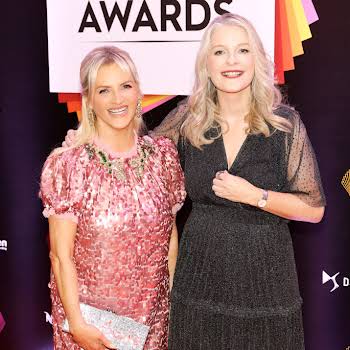
Sponsored
Future of Work: Strategies to attract and retain talent
Sponsored By

By IMAGE
03rd Apr 2025
03rd Apr 2025
Sponsored By

New insights from a Cpl Future of Work Institute research programme shines a light on what attracts employees to new organisations and what encourages them to stay. In his monthly column, Barry Winkless, CSO Cpl Group & Head of the Future of Work Institute, explores key strategies for organisations in the first of a two-part series. Part two, to be published in the next column, will explore gender and generational differences.
“What do we really want from work?” Multiple studies have been conducted on this important topic and, at Cpl’s Future of Work Institute, we have just completed our own to throw into the milieu. Conducted over a four-month period, our changing expectations of work and life programme has finally come to a first phase fruition. This is an ongoing piece of work so we will not say that it is ‘complete’, but we have many interesting results that are worth sharing at this stage.
The big four
We asked participants to prioritise between the four most important reasons for choosing an employer: compensation and benefits (which included flexible working); leadership and culture; employee experience; and organisation dynamics and structure (which included elements such as business stability and reputation). Compensation and benefits came out on top (35%), followed by leadership and culture (24%); and employee experience (21%) was narrowly ahead of organisation dynamics and structure (20%).
At first glance, there are probably no surprises, but when we delved a little deeper and looked at first and second priorities combined, compensation and benefits, still on top came out at 62% but followed not too far behind by leadership and culture at 54%. It is interesting to see a growing parity between these two areas.
‘Any meaningful talent strategy needs to have flexibility and work- life balance at its centre to be successful.’
Importance of flexibility
When we delved deeper on the compensation and benefits part of the study, remuneration was highlighted as the most important factor (32%), but it was closely followed by flexible working arrangement (26%).
We included flexible working arrangements in this category, in contrast to previous studies, because employees are now seeking these types of arrangements as a critical factor in their overall package. Previously, from a study we conducted last year, one in four wouldn’t proceed with a job opportunity unless it offered some level of flexible working. We explored this topic in last month’s column- suffice to say more than 70% of employees are now availing of more than one form of flexible working arrangement.
Leadership and culture
Within the leadership and culture element of the study the importance of culture, values and ethics was highlighted and came out as a key area at 27%, followed by work environment (25%) and leadership behaviours (24%). We are seeing a growth in the importance of these areas in many of our studies and projects. ‘Purpose-led organisations’ can be an over-used phrase and it is a little challenging to find true examples of purpose-led companies that are truly embracing a purpose before or with a profit strategy, but it is safe to say that employees prefer working for organisations that are more than just money-making machines.
Work environment, which was included in this element because it can have a major impact on the culture of an organisation, is becoming more important due to normalised hybrid working practices. People expect when they do ‘make the effort to come in’ to have a welcoming, collaborative and inviting space.
It is often said that people don’t leave companies, they leave leaders and this borne out by the study. Leadership behaviours are a major driver of attraction and retention but also, unfortunately, an attrition driver. Often, we see employees being elevated into leadership positions with very little leadership experience or leadership exposure, which can sometimes lead to a sub-optimal culture.
We have learned that it is critical that capable leaders are not just harnessed internally, but are also used as external ‘talent beacons’ in an organisation’s attraction and recruitment efforts.
It is safe to say that employees prefer working for organisations that are more than just money-making machines.
Balance and meaning
Far and away the most important factor within the employee experience element of the study was work-life balance (40%) followed by meaningful and stimulating work (21%). Some recent studies from other sources have highlighted that in some cases work-life balance is becoming even more important than compensation, but I’m not so sure. Over the past five years we have conducted multiple studies and though the importance of work-life balance to the respondents is increasing, it hasn’t taken place of compensation just yet.
However, when taken into account alongside the relative importance of flexible working, it is safe to say that any meaningful talent strategy needs to have flexibility and work-life balance at its centre to be successful.
Organisation dynamics and stability
The most important factor under the banner of “organisation dynamics and stability”was organisation stability and growth (34%) followed by organisation structure (22%); and mission and purpose (17%). Interestingly “CSR and Sustainability” was cited as the least important factor at 5%. This shows there may be work to do by organisations in re-igniting the needs for net benefit organisations with a focus on positive community and environmental impact. What is also interesting is the importance of organisation structure and design, highlighting employees’ preference for companies that are well structured and optimally designed.
Environment, community and AI
As part of the study, we also asked respondents about their organisation’s impact on the environment, their organisations focus on community betterment and their concerns about artificial intelligence (AI). Only 15% of respondents were extremely satisfied with their organisation’s approach to environmental impact; 49% were either neutral, somewhat dissatisfied or extremely dissatisfied in this area. In relation to organisations’ efforts given to local community betterment; 40% felt that their organisation do a large or good amount but 60% felt they only did a moderate level, with little or no support of their local communities.
People expect when they do ‘make the effort to come’ into the office to have a welcoming, collaborative and inviting space.
When it came to AI, only 6% were extremely concerned about the impact of AI on their jobs compared to 33% moderately concerned, 26% slightly concerned and 35% not concerned at all. From our work at the Future of Work Institute it is obvious that most casual users of AI only have a topline appreciation of the significant current and future capability that AI has in augmenting and automating a significant number of both routine and non-routine tasks. It will be interesting to see how these dynamics shift over the coming five years.
Recruitment opportunities
In many ways what we want from work hasn’t changed all that much – we still want a job that pays well. However, we now have greater and broader expectations of work. We expect to have a healthy work-life balance enabled by structured flexibility programmes. We also expect to work for organisations that have strong, defined cultures and pleasant work environments that enable us to be our best when we do ‘come into the office’. We also expect a level of leadership that supports us, and we have a need to undertake stimulating and meaningful work.
Organisations have an opportunity to take these aspects into account when designing their talent and people strategies. At Cpl, we suggest moving away from disconnected, tactical ‘initiatives’ and focusing on the fundamentals like structured work-life balance strategies; ongoing and innovative leadership; team development programmes; and developing and maintaining a focus on deep cultural development.
Barry Winkless is CSO of Cpl, one of the largest talent and workforce organisations in Europe, and head of their Future of Work Institute, an advisory and research group focused on people centric, strategic change and innovation. He has over 25 years’ experience working nationally and globally for and with some of the world’s most respected brands and businesses. He was recently named as one of the top 50 global influencers on the Future of Work.
Read more from the Future of Work Institute here.


























